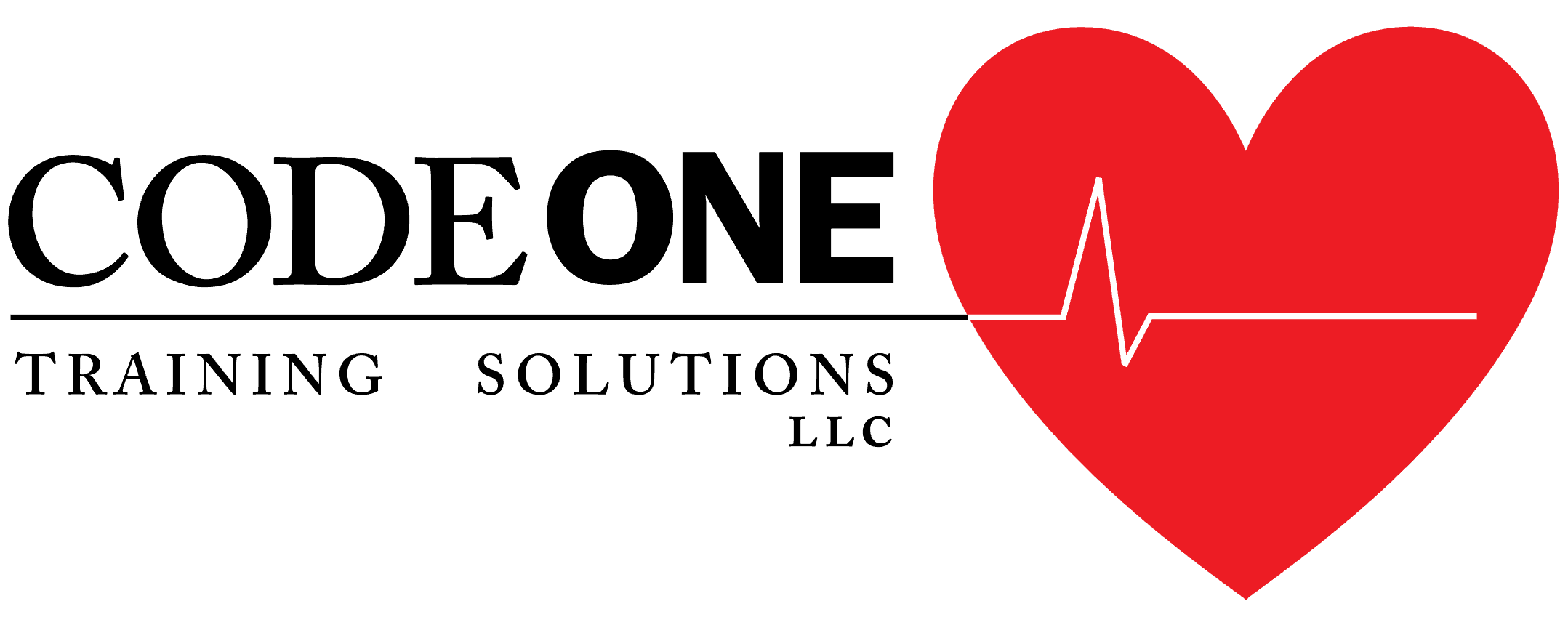The short and simple answer is, at home. More than 350,000 cardiac arrests occur outside of the hospital setting. The American Heart Association reports, 70% of cardiac arrests that happen outside of the hospital, happen at home. Only about 18% of cardiac arrests happen in a public setting.
With this in mind, it would be a good idea for everyone to take a CPR class at some point. The AHA offers courses for individuals who do not work in the medical field but want to gain life saving skills. These are Heartsaver courses which can cover CPR for adults and children, infants or first aid. Here at Code One, we offer these AHA courses in a Covid safe virtual environment.
What will I learn in a cpr course?
During these courses you will gain CPR skills that when immediately performed can double or triple the chance of survival. Only about 46% of people who experience a cardiac arrest outside of a hospital, receive CPR before professional help arrives. Within these courses, the use of AEDs will be discussed and you will have the opportunity to get familiar with one. Here’s an example of what you’ll learn in a BEACON Heartsaver First Aid CPR & AED course:
Beacon Heartsaver First Aid CPR AED Skills
- CPR for Adults
- CPR for Children and Infants
- Checking for Injuries
- Rescue Breathing
- Relief of Choking
- Bleeding Control
- Splinting
- Medical Emergencies
CPR and AED’s in the workplace
About 10,000 cardiac arrests happen in the workplace each year. According to the American Heart Association, half of all US workers cannot locate an AED at work. Within the hospitality industry alone, 66% of employees are unable to locate an AED. Think of how many lives could be saved if more people were CPR/AED trained.
Most workplaces have AED’s on site, from fast food franchises to construction sites. If you’re unsure if your workplace has one, think about asking your manager if you have an AED and where it is. This knowledge could help save a co-workers life.
What will I learn about First Aid?
In addition to CPR and AED training, when first aid is added to these courses, you will learn how to respond to someone having an anaphylactic reaction to an allergen, control bleeding caused by a variety of wounds, learn about how to treat shock, and perform the Heimlich maneuver when someone is choking. Each one of these skills can help you save a life when facing a crisis.


